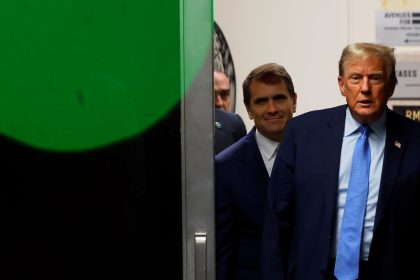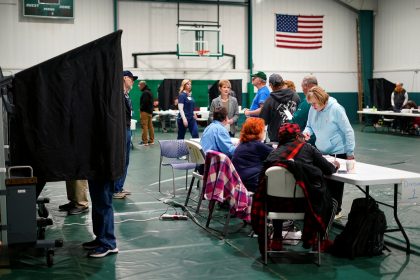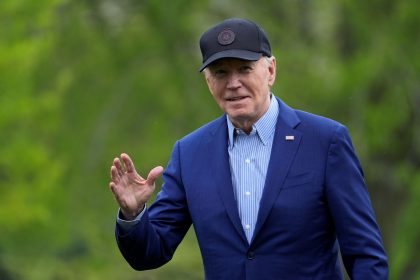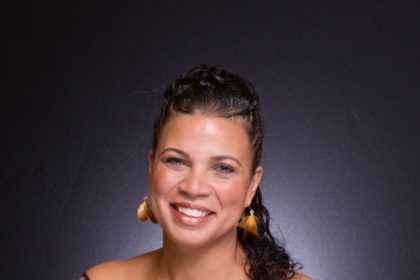The 2024 Democratic Convention Delegate Process Explained
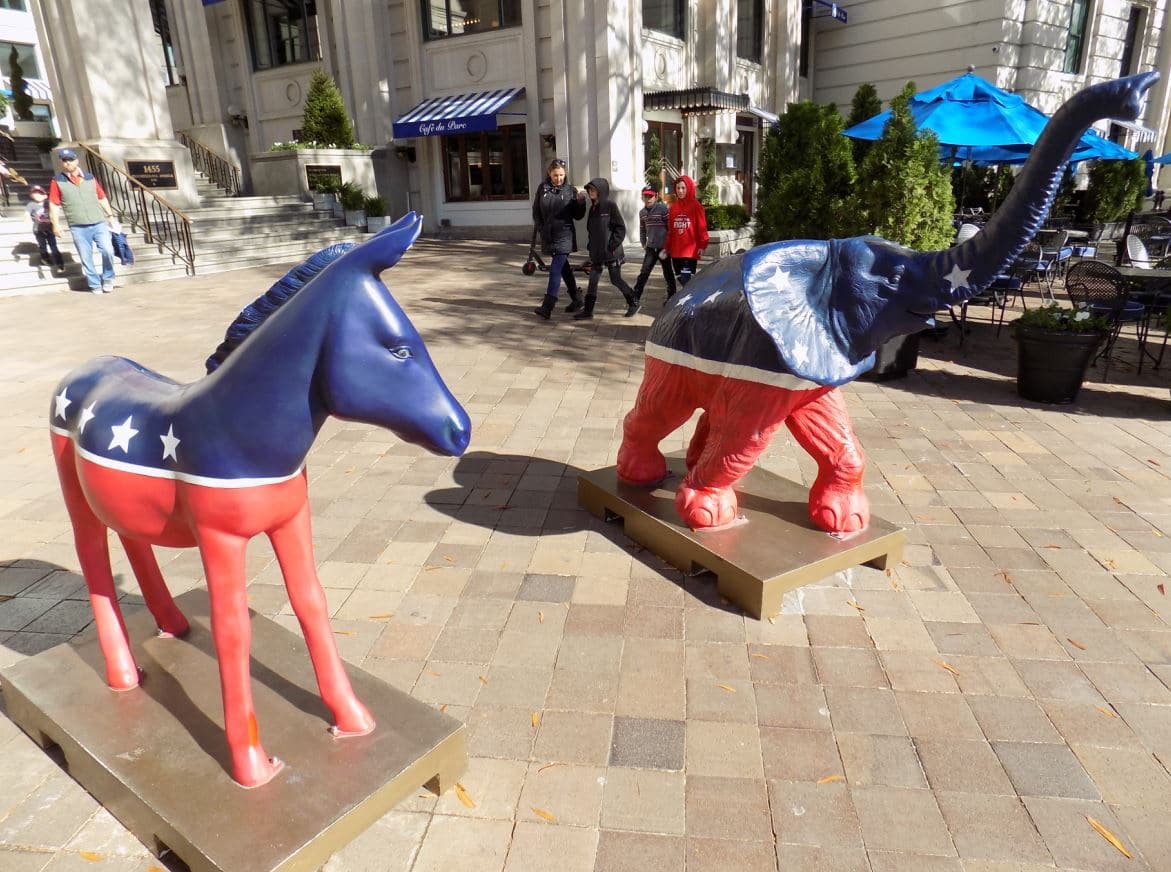
WASHINGTON — Although most of us focus on the candidates running for president, in reality, the primaries and caucuses in which we vote are a process of selecting delegates in each state to send to their party’s national presidential nominating convention.
Once at those conventions, delegates cast their vote for a particular candidate based on the preferences of the voters in the state they represent.
Despite the importance of the convention, the actual rules that cover delegate selection and behavior are obscure even to seasoned political watchers.
Their formulation begins with the members of Democratic National Committee’s Rules and Bylaws Committee, who meet every four years to develop the so-called “foundational” materials that govern the party’s presidential nominating process.
RELATED READ | The 2024 Republican Convention Delegate Process Explained
Working with state party committees, every effort is made to ensure that delegate selection in each state is conducted in conformity with the national party’s rules and three key governing documents.
These begin with the delegate selection rules themselves, which govern the nominating process.
While the rules are mostly prescriptive in nature, they also include prohibitions. For instance, no fees can be charged as the price of admission to the delegate selection process, secret ballots are strictly prohibited and no one can participate in the nominating process for a Democratic presidential candidate who is already about to participate in the nominating process of another party.
Then there’s the “call” to the national convention, which includes information about the allocation of delegates, alternates, standing committee members and pages as well as temporary procedural rules for the convention.
Finally, there are the regulations established by the rules and bylaws committee itself that provide guidance on implementing the previous two documents as well as dealing with “other” matters pertaining to the delegate selection process.
In 2024, there will be an estimated 4,532 delegates at the Democratic National Convention to be held in Chicago, Illinois. These will include 3,788 pledged delegates and 744 “automatic” delegates — more commonly known as superdelegates.
To win the Democratic nomination, a presidential candidate needs to receive the support of a majority — or roughly 1,895 — of the pledged delegates.
If the convention is contested and goes to a second ballot, the automatic/superdelegates will then be able to vote. Once they’re engaged, the number of votes needed rises to 2,258.
So Who Gets to Be a Delegate Anyway?
Delegates, as one might imagine, are typically party activists, local political leaders or notable early supporters of a particular candidate.
They are selected in primaries or caucuses or at state-level party conventions. A few are selected simply because they are already elected officials or are members of the party leadership.
A quick look at the map below reveals that the number of delegates each state is allocated varies widely, ranging from 16 in Wyoming to 495 in California.
The number of delegates awarded to each state is determined by a formula that includes the state’s popular vote for the Democratic nominee in the previous three elections (in this case 2012, 2016 and 2020).
Also factored in are the state’s electoral votes and when the state’s primary is held.
Once that number is determined, how states handle their respective selection process is largely up to them.
In some, voters vote for their preferred presidential candidates and the delegates are chosen separately at party conventions. In others, voters cast their ballot indirectly, voting for a slate of delegates supporting their preferred candidate.
Candidates are only eligible to receive a share of the pledged delegates if they received 15% of the vote in a primary or caucus.
Every state also has alternate delegates, as do the District of Columbia and U.S. territories. These alternates attend the convention but do not vote unless a pledged delegate is unable to attend.
Incidentally, the territories without electoral votes — American Samoa, Guam, Northern Marianas and the Virgin Islands — are each assigned six at-large delegate votes.
Democrats Abroad, the official organization of the Democratic National Committee for U.S. citizens living temporarily or permanently abroad, but eligible to vote, is assigned 12 at-large and one pledged PLEO delegate vote. Puerto Rico, meanwhile, is assigned 44 votes.
Now Let’s Take a Look at the Individual Delegates
So you’ve run the gauntlet and been selected to be a pledged candidate. What that means, under Rule 13(J) of the committee, is that you’ve effectively promised to vote in such a way as to reflect the sentiments of those who elected you.
Again by rule, there are three types of pledged delegates — those elected on the congressional or state legislative district level; those who are considered “statewide” delegates; and PLEOs, otherwise known as party leaders and elected officials.
Unlike pledged delegates, automatic/superdelegates are not required to pledge their allegiance to any presidential candidate and can support anyone they choose.
This select group includes 447 members of the Democratic National Committee itself, Democratic members of Congress, governors and distinguished party members such as former presidents and vice presidents.
It might be appropriate to note the role of automatic/superdelegates has changed since the term “superdelegate” became somewhat notorious during the 2016 primary between former Secretary of State Hillary Clinton and Sen. Bernie Sanders, I-Vt.
Following the 2016 presidential election, the DNC established a “Unity Reform Commission” to revise the nominating process and reduced the power of the superdelegates who virtually guaranteed a Clinton victory no matter how well Sanders did in individual primaries or caucuses.
As one of its last orders of business at its national convention in the summer of 2018, the DNC voted to ban superdelegates from voting on the first ballot at a contested convention and opted for the name “automatic” delegate to move on from the debacle that ended with Republican Donald Trump in the White House.
What About That Changing Calendar?
In February 2023, the Democratic National Committee approved the reordering of its 2024 presidential primaries and caucuses, replacing Iowa with South Carolina at the head of the pack in a move meant to empower Black and other minority voters critical to its base of support.
Following a plan blessed by President Joe Biden, next year’s nominating calendar will kick off with South Carolina on Feb. 3, followed by New Hampshire and Nevada on Feb. 6 and Michigan on Feb. 27.
Georgia, which was initially elevated to a top slot, wasn’t able to change its date, due to its Republican-controlled Legislature and governor’s mansion. That means Iowa is effectively eliminated from the early state process in the 2024 cycle.
Iowa’s mail-in vote was kicked back to Super Tuesday, March 5.
Not surprisingly, Iowa and New Hampshire initially balked. But Iowa Democrats eventually capitulated, coming to an agreement with the DNC in which the Iowa Democratic caucus would still be held early — on Jan. 15 — to “address party business” but that the results of the state’s mail-in presidential vote would not be released until March 5.
New Hampshire, however, decided not to budge. In November, New Hampshire Secretary of State David Scanlan, insisting that state law obligated him to preserve the Granite State’s “first-in-the-nation” status, declared its primary will be Jan. 23.
That prompted the DNC to officially declare the state “not compliant” and the Biden campaign to forgo registering to appear on the ballot there.
Others, however, opted to go ahead and maintain the old status quo. Rep. Dean Phillips, D-Minn., who is running a primary against Biden, has campaigned extensively in New Hampshire, and he, author Marianne Williamson, and more than 20 other Democrats will appear on the state’s ballot.
An informal effort to represent Biden as a write-in candidate is also now underway.
All of this comes down to the outsized influence early contests have in determining the presidential nominee.
While winners move on, also-rans tend to have trouble raising money after the initial loss or losses and often drop out soon afterwards.
“The Democratic Party looks like America and so does this proposal,” the party chairman, Jaime Harrison, said before the new calendar was approved.
It “elevates the backbone of our party,” he said.
To enforce the new plan, the party established a series of contest “windows” and sanctions for those violating them.
According to section 21.C. 1 of the party’s delegate selection rules, any jurisdiction that chooses to hold a contest prior to the window to which it has been assigned will see its pledged delegate allocation reduced by 50% and their unpledged delegates barred from voting at the national convention.
Further, the rule says that any presidential candidate who campaigns in a state where the state party is in violation of the timing provisions of these rules, or where a primary or caucus is set by a state’s government on a date that violates its assigned “window,” simply won’t receive pledged delegates or delegate votes from that state.
As of this writing, New Hampshire still retains all 34 of its delegates, and the DNC has yet to announce what sanctions it will actually enforce once the primary is actually held.
“There are multiple scenarios that could play out between now and the Chicago convention. While there may be proclamations announced, nothing is definitive. Nevertheless, New Hampshire Democrats are focused on winning in November,” said Raymond Buckley, state chair of the New Hampshire Democratic Party.
Awarding Delegates to Candidates
Of course, the horse race that is electoral politics involves winning; in this case, winning entails amassing as many delegates as one can during the primaries, caucuses and conventions.
In primary states, the delegates are allocated according to the statewide primary vote. In non-primary states — those that hold caucuses or use a party, rather than a government-run, selection process — the delegates are allocated according to the outcome of their respective contest.
The so-called “district” delegates are proportionally allocated according to the vote in each congressional or state legislative district.
At-large delegates are proportionally allocated according to the statewide vote. In most states, the delegates are selected sometime after the primary or caucus, though the results still play a direct role in how many are selected and who they will support.
Finally, the PLEO delegates are proportionally allocated according to the statewide vote.
Dan can be reached at [email protected] and at https://twitter.com/DanMcCue


















